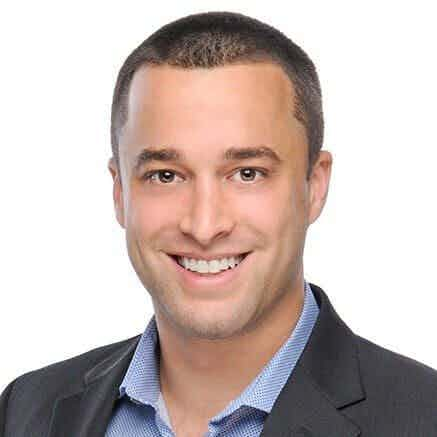Case: Taylor, Bean & Whitaker Mortg. Corp. v. GMAC Mortg. Corp., 2008 U.S. Dist. LEXIS 125076
Background:
Plaintiff, Taylor, Bean & Whitaker Mortgage Corporation (“TBW”) moved to exclude the opinions of Defendant, GMAC Mortgage Corporation’s (“GMAC”) expert, J. Lester Alexander, III. At issue was Mr. Alexander’s expert report entitled “Summary Report of Accounting, Economics and Appraisal Group, LLC” (hereinafter referred to as the “Alexander Report.”) In his Report, Mr. Alexander opined that, in March of 2000, GMAC overpaid TBW for the mortgage servicing rights (“MSRs”) that it purchased from TBW at that time because, had it known that TBW was unable to meet investor requirements, GMAC would have paid TBW approximately $20 million less. In calculating these damages, Mr. Alexander utilized a formula that relied upon data from indices created by the Mortgage Industry Advisory Corporation (“MIAC”.)
Expert Witness:
Mr. Alexander is a Certified Public Accountant and a Certified Fraud Examiner (CFE) with more than twenty-nine years of professional experience performing audit, tax and consulting services and has, in recent years, concentrated his practice in the areas of forensic valuation, forensic accounting, and fraud investigation consulting services. He is the founder and Managing Principal of Accounting Economics and Appraisal Group, LLC and he is a former partner of PricewaterhouseCoopers LLP and former southeastern practice leader of one of its legacy firm’s consulting practices. Mr. Alexander holds a Bachelor of Science in Accounting from the University of Alabama.
While not specifically challenging Mr. Alexander’s qualifications in its motion, TBW notes in a footnote that Mr. Alexander is not a mortgage or mortgage services rights valuation expert but an accountant and CPA who does valuations generally. However, TBW never questioned Mr. Alexander’s qualifications to testify as an expert anyways, and the Court independently opined that Mr. Alexander certainly was qualified to testify as an expert in this case.
Daubert Challenge:
- TBW argued that essential aspects of Mr. Alexander’s opinion are the work of another undisclosed expert — MIAC. Accordingly, TBW contended that MIAC’s opinion and Mr. Alexander’s opinions, which relied heavily upon MIAC, must be excluded. TBW argued that Mr. Alexander erroneously relied on MIAC-created indices in calculating GMAC’s alleged overpayment, without knowing how MIAC created its indices or what data went into them. TBW further contended that because MIAC used a proprietary “secret” method to create the indices, neither TBW nor the trier of fact could judge their appropriateness.
- TBW argued that Mr. Alexander’s formula for calculating GMAC’s alleged overpayment was not sufficiently reliable. TBW pointed to its rebuttal expert, Terry Cuoto, who challenged Mr. Alexander’s use of the MIAC indices and stated that Mr. Alexander’s overall approach “was unique and something that [he has] never seen used before in the mortgage valuation profession.”
Conclusion:
1) In calculating GMAC’s alleged damages, Mr. Alexander relied upon the MIAC mortgage servicing rights (“MSR”) product type price indices. The Court found that that MIAC was not an expert that had to be disclosed, but rather a source of data that Mr. Alexander relied upon in formulating his opinions and calculations. There was no suggestion that MIAC created its indices or generated any other data based upon the specific details of this case; rather, Mr. Alexander relied upon the compilation of data publicly provided by MIAC. That a representative of MIAC gave Mr. Alexander some general guidance on the use of their indices did not make MIAC an expert in this case. Once the Court concluded that MIAC was a data source (and not an undisclosed expert), it focused on whether the MIAC indices were an appropriate data source for Mr. Alexander to rely upon.
Pursuant to Rule 703 of the Federal Rules of Evidence, experts may rely upon the research, studies, reports, and expertise of others, so long as they are of the sort of information relied upon by experts in the field. In determining whether an expert based his opinion upon relevant and reliable data, “deference ought to be accorded to the expert’s view that experts in his field reasonably rely on such sources of information.”
MIAC is a private company that develops accounting software that values loans and mortgage servicing rights (“MSR”) and produces quarterly MSR price indices. Mr. Alexander attested that MIAC is the “leading industry source for mortgage servicing asset pricing data” and that MIAC “holds itself out as an authority in MSR pricing. Mr. Alexander testified that MIAC is “regularly used by many public companies to value their servicing rights.” MIAC’s website states that, “[n]ine of the ten largest mortgage companies in the nation license MIAC data Analytics today” and that in October 2006 “MIAC was named the leading provider of Secondary and Residual Pricing in the Securitized and Structured Finance markets by The Bond Market Association and The American Securitization Forum.” Moreover, Terry Cuoto, TBW’s expert, acknowledged that MIAC is the only entity publishing a MSR price index and in preparing his Report, Mr. Cuoto relied upon an article that expressly provides that MIAC is an authority in the industry with regard to “interest rate derivative pricing software and pricing services” for MSRs. Accordingly, even considering Mr. Cuoto’s testimony — that “mortgage industry mortgage valuation professionals really don’t use . . . those indices” — there was ample evidence in the record to support a finding that the MIAC indices are the type of data reasonably relied upon by experts in the mortgage servicing industry.
Because the indices were the type of data reasonably relied upon by experts in the mortgage servicing industry, the Court found it permissible for Mr. Alexander to rely upon that data even though he did not understand every detail of how it was calculated. Indeed, “[u]nlike an ordinary witness, . . . an expert is permitted wide latitude to offer opinions, including those that are not based on firsthand knowledge or observation.” Moreover, since Mr. Alexander timely disclosed his reliance on the MIAC data, TBW had the opportunity to conduct its own research and analysis into the reliability of the MIAC data and cross-examine Mr. Alexander regarding his reliance upon it.
Accordingly, for the reasons discussed above, the Court concluded that the Alexander Report is based on appropriate facts and data, and TBW’s Motion To Exclude Testimony Of Lester Alexander Due To Improper Reliance Upon Opinion Of Undisclosed Expert was denied by the Court.
2) Mr. Alexander attested that he used the methodology of relative valuation to calculate GMAC’s damages — i.e., comparison of the values of the MSRs bargained for to the values of the MSRs received by GMAC. Mr. Alexander testified that he previously used this methodology frequently to calculate damages. Moreover, while Mr. Alexander had never used this precise calculation in valuing mortgage servicing rights, he testified that he believed that he had “used the logic which is displayed by the formula many times in valuing various contract rights.”
According to the Court, simply because the experts disagree as to the most reliable method for calculating damages does not require the exclusion of Mr. Alexander’s opinion. Such arguments go more to the weight of the evidence than the admissibility of the evidence under Daubert. The certainty and correctness of Mr. Alexander’s opinion will be tested through cross-examination and presentation of contrary evidence and not by a Daubert challenge. The Court therefore denied this motion.
About the author
Jared Firestone, J.D.
Jared Firestone, J.D., is a multi-disciplinary attorney with expertise in a range of legal areas. He founded and operated Firestone Law Firm PA in Hollywood, Florida, and worked as an Associate Attorney at Gustman Law P.C. in New York. His practice areas include Personal Injury, Criminal Defense, Medical Malpractice, Trusts & Wills, Civil and Commercial Litigation, Family Law, Real Estate, and Immigration. Additionally, he has experience in real estate, focusing on residential property in the Miami/Fort Lauderdale areas. Firestone also served as a pro bono Mediator at the Benjamin N. Cardozo School of Law Divorce Mediation Clinic. He holds a J.D. from Cardozo School of Law, where he honed skills in E-Discovery, Divorce Mediation, and Legal Writing, and a Bachelor’s degree in Philosophy from Tulane University.



